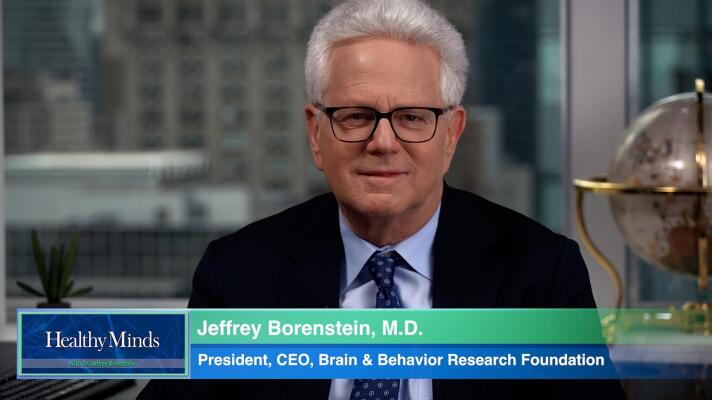Extras
A support organization designed to give opportunities to people living with mental illness
Episode:
S8
E13
|
26:46
Non-profit founded by families impacted by mental illness provides free resources.
Episode:
S8
E12
|
26:47
The psychologist and MacArthur Fellow shares her experience as a researcher and patient.
Episode:
S8
E11
|
26:46
Behavioral analysis, prescription compliance and more factors of successful treatment.
Episode:
S8
E3
|
26:47
Research on rising rates among cultural groups, effective prevention, and more.
Episode:
S8
E4
|
26:47
Treating anorexia nervosa, bulimia nervosa, binge eating, and more food disorders.
Episode:
S8
E8
|
26:46
Identifying risk factors, survivor grief, strategies for intervention, and more.
Episode:
S8
E5
|
26:47
Self-reflection, connections, and more ways to improve neuroplasticity for healthy aging.
Episode:
S8
E6
|
26:47
The psychologist and MacArthur Fellow shares her experience as a researcher and patient.
Episode:
S8
E10
|
26:46
The role of environment and pre-existing risk factors in BPD has identified new therapies.
Episode:
S8
E9
|
26:46
Latest Episodes
All
-
All
-
Healthy Minds With Dr. Jeffrey Borenstein Season 10
-
Healthy Minds With Dr. Jeffrey Borenstein Season 9
-
Healthy Minds With Dr. Jeffrey Borenstein Season 8
-
Healthy Minds With Dr. Jeffrey Borenstein Season 7
-
Season 6
-
Season 5
Pioneering work turns stem cells into brain cells in cultures to potentially treat disorders.
Episode:
S10
E12
|
26:46
Navigating the issues of mental illness diagnosis and competency for trial.
Episode:
S10
E9
|
26:46
Symptom education for early intervention, and the benefits of a team approach with peer support.
Episode:
S10
E13
|
26:47
Prioritizing early intervention and education plans to give autistic children more opportunity.
Episode:
S10
E11
|
26:46
Assessing developmental history, degree of symptoms, eye contact, motor behaviors, and genetics.
Episode:
S10
E10
|
26:46
Using mathematical models and brain imaging to understand bulimia nervosa and binge eating.
Episode:
S10
E8
|
26:47
Cognitive behavior and virtual reality therapies for excessive acquisition, difficulty discarding.
Episode:
S10
E7
|
26:47
How excessive alcohol use in adolescence causes temporary and permanent changes to brain function.
Episode:
S10
E6
|
26:47
The biological impact on the brain of meditation and community in addition to traditional therapies.
Episode:
S10
E4
|
25:46
Ketamine as effective treatment for depression; a synthetic hormone treats post-partum depression.
Episode:
S10
E1
|
26:47





















